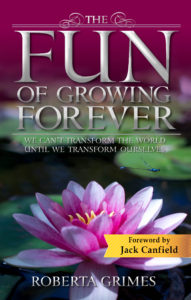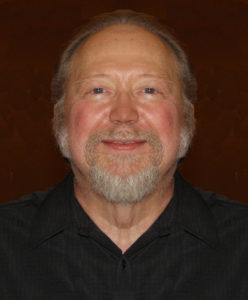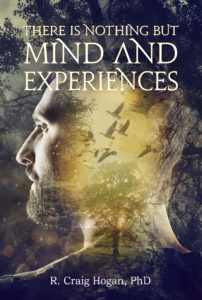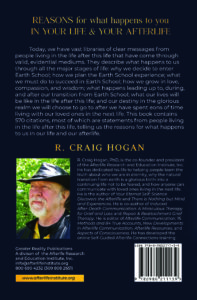All hail the power of Jesus’s name!
Let angels prostrate fall.
Bring forth the royal diadem,
And crown him Lord of all!
– Edward Perronet (1726-1792), from “All Hail the Power of Jesus’s Name” (1779)
 The single most important thing that any of us can do in this lifetime is to learn how to forgive. Automatically and completely. Learning radical forgiveness is more important than loving, than being rich and famous, or even than helping charities. Learning to forgive as Jesus calls us to forgive is our most essential task for this lifetime, because until we master true prevenient forgiveness, our ever learning to love as Jesus taught us to love is going to be impossible. This is the first part of a two-week message, both parts of which are essential. I don’t think either one of them is going to be complete without the other.
The single most important thing that any of us can do in this lifetime is to learn how to forgive. Automatically and completely. Learning radical forgiveness is more important than loving, than being rich and famous, or even than helping charities. Learning to forgive as Jesus calls us to forgive is our most essential task for this lifetime, because until we master true prevenient forgiveness, our ever learning to love as Jesus taught us to love is going to be impossible. This is the first part of a two-week message, both parts of which are essential. I don’t think either one of them is going to be complete without the other.
Forgiveness plays a clear second-fiddle. It is always that sweet and fancy, hot and spicy primary commandment from God that comes first! Love is a big and happy word, and we see it always as our primary goal. We are sure that love is the most important thing that Jesus ever taught. When He was asked what was the greatest commandment, Jesus didn’t name any of the Ten Commandments. Instead He said, “‘You shall love the Lord your God with all your heart, and with all your soul, and with all your mind.’ This is the great and foremost commandment. The second is like it, ‘You shall love your neighbor as yourself’” (MT 22:37-39). His big announcement is still to this day absolutely gigantic news! The word “love” isn’t even alluded to in the original Ten Commandments, and now Jesus tells us it comes first? And not only love for God, but also love for our fellow man? And this isn’t even the Lord’s biggest redirection of our priorities. He follows that ground-breaking, earth-shaking revelation with what looks like the jettisoning of the entire Old Testament. He says, “On these two commandments depend the whole Law and the Prophets” (MT 22:40). So He’s actually telling us that we can jettison “the whole Law and the Prophets,” now that we have God’s Law of Love? What else can that last sentence possibly mean?
 And throughout the Gospels Jesus calls us to accomplish ever more radical feats of love! He says, “But love your enemies, and do good, and lend, expecting nothing in return; and your reward will be great, and you will be sons of the Most High; for He Himself is kind to ungrateful and evil men. Be merciful, just as your Father is merciful” (LK 6:35-36). And He says, “You have heard that it was said, ‘You shall love your neighbor and hate your enemy.’ But I say to you, love your enemies and pray for those who persecute you, so that you may be sons of your Father who is in heaven; for He causes His sun to rise on the evil and the good, and sends rain on the righteous and the unrighteous. For if you love those who love you, what reward do you have? Do not even the tax collectors do the same? If you greet only your brothers, what more are you doing than others? Do not even the Gentiles do the same? Therefore you are to be perfect, as your heavenly Father is perfect” (MT 5:43-48).
And throughout the Gospels Jesus calls us to accomplish ever more radical feats of love! He says, “But love your enemies, and do good, and lend, expecting nothing in return; and your reward will be great, and you will be sons of the Most High; for He Himself is kind to ungrateful and evil men. Be merciful, just as your Father is merciful” (LK 6:35-36). And He says, “You have heard that it was said, ‘You shall love your neighbor and hate your enemy.’ But I say to you, love your enemies and pray for those who persecute you, so that you may be sons of your Father who is in heaven; for He causes His sun to rise on the evil and the good, and sends rain on the righteous and the unrighteous. For if you love those who love you, what reward do you have? Do not even the tax collectors do the same? If you greet only your brothers, what more are you doing than others? Do not even the Gentiles do the same? Therefore you are to be perfect, as your heavenly Father is perfect” (MT 5:43-48).
Altogether, the word “love” appears some 66 times in just the four Gospels. And it so inspired the earliest followers of Jesus – especially the Apostle Paul – that it comes up another 418 times in the rest of the New Testament. Jesus’s big and flashy call to love inspired Paul to write the greatest call for us to love that ever was written, which ends with these immortal words: “But now faith, hope, love, these three abide; but the greatest of these is love” (1Cor 13:13).
 So when I tell you now that the most important thing for your own spiritual growth that Jesus ever taught was not love at all, but it was forgiveness, you are shocked. The word “forgive” appears just 114 times in the entire Christian Bible, including 37 times in the four Gospels and 19 times in the whole rest of the New Testament. Compared to love, forgiveness is a piker word! And I’m going to tell you something else that may shock you. I think we might just have noticed the first place where Jesus, who came to us directly from the highest aspect of the Godhead so He could study us and then teach us at our level, seems to have expected more of us than we have been able to deliver.
So when I tell you now that the most important thing for your own spiritual growth that Jesus ever taught was not love at all, but it was forgiveness, you are shocked. The word “forgive” appears just 114 times in the entire Christian Bible, including 37 times in the four Gospels and 19 times in the whole rest of the New Testament. Compared to love, forgiveness is a piker word! And I’m going to tell you something else that may shock you. I think we might just have noticed the first place where Jesus, who came to us directly from the highest aspect of the Godhead so He could study us and then teach us at our level, seems to have expected more of us than we have been able to deliver.
Rather than digging down to basics and telling us how to go from reflexive judgment to reflexive forgiveness, He seems to assume that we will readily be able to figure out how to do that. For example, He says, “But love your enemies, and do good, and lend, expecting nothing in return; and your reward will be great, and you will be sons of the Most High; for He Himself is kind to ungrateful and evil men. Be merciful, just as your Father is merciful” (LK 6:35-36). Well, okay, Jesus. We’ll try our best. We can imagine carrying out that bit of advice, but then Jesus also says, “do not resist an evil person; but whoever slaps you on your right cheek, turn the other to him also. If anyone wants to sue you and take your shirt, let him have your coat also. Whoever forces you to go one mile, go with him two” (MT 5:39-41). Huh? Someone abuses you, so then you’re supposed to assist him in giving you even more abuse? What kind of a crazy person acts this way?
And He wants us even to police what we think! He says, “You have heard that the ancients were told, ‘You shall not commit murder’ and ‘Whoever commits murder shall be liable to the court.’ But I say to you that everyone who is angry with his brother shall be guilty before the court; and whoever says to his brother, ‘You good-for-nothing,’ shall be guilty before the supreme court” (MT 5:21-22).
 None of this made sense to me until I learned a trick that I now teach. But although we cannot know for certain, Jesus seems never to have taught that trick. He simply commanded that we always forgive. But forgiving something big that has already happened turns out to be nearly impossible! You’ve got to first notice the wrong as your anger and resentment rapidly rise, and then struggle to wrestle down all those negative emotions. I can recall the days when an insult from someone or being shortchanged or cut off in traffic could ruin my entire afternoon! I submit to you that until you learn prevenient forgiveness, just trying to follow the Lord’s command that you always forgive so you can learn how to love will never work. And the effort will make you miserable.
None of this made sense to me until I learned a trick that I now teach. But although we cannot know for certain, Jesus seems never to have taught that trick. He simply commanded that we always forgive. But forgiving something big that has already happened turns out to be nearly impossible! You’ve got to first notice the wrong as your anger and resentment rapidly rise, and then struggle to wrestle down all those negative emotions. I can recall the days when an insult from someone or being shortchanged or cut off in traffic could ruin my entire afternoon! I submit to you that until you learn prevenient forgiveness, just trying to follow the Lord’s command that you always forgive so you can learn how to love will never work. And the effort will make you miserable.
Jesus seems to have assumed that we could readily get past this almost universal forgiveness struggle. When Peter asked him, “Lord, how often shall my brother sin against me and I forgive him? Up to seven times?” Jesus said to him, “I do not say to you, up to seven times, but up to seventy times seven” (MT 18:21-23). In other words, even if someone does the same awful thing to you a million times and he never shows any remorse at all, you still are meant to always forgive him!
Furthermore, Jesus makes our forgiveness of others an essential precursor of God’s forgiveness of us. In the Greatest Prayer He teaches us to say, “And forgive us our debts, as we also have forgiven our debtors” (MT 6:12). Seems fair enough! He makes the exchange of our forgiving of others for God’s forgiveness of us even more explicit when He says, “For if you forgive others for their transgressions, your heavenly Father will also forgive you. But if you do not forgive others, then your Father will not forgive your transgressions” (MT 6:14-15). And, “Whenever you stand praying, forgive, if you have anything against anyone, so that your Father who is in heaven will also forgive you your transgressions” (MK 11:25).
 The only place in the Gospels where we have a hint that Jesus does indeed understand (and probably therefore He also taught) the fact that forgiving automatically is an essential precursor to our ever learning divine love seems more obscure than it deserves to be. Jesus taught for more than three years, so we have to assume that nearly everything He said has been lost! We are dependent on the memories of people who were so ignorant that what they remembered long enough for it to be written down is probably just the biggest highlights, and the most simplistic and obvious parts of what Jesus taught. And then there is this. When Jesus was reclining at table and a prostitute began to perfume His feet and wash them with her tears, and those around Him tried to warn Him about her, He said, “You did not anoint My head with oil, but she anointed My feet with perfume. For this reason I say to you, her sins, which are many, have been forgiven, for she loved much; but he who is forgiven little, loves little.” Then He said to her, “Your sins have been forgiven” (LK 7:45-46). This passage fascinates me. I recall His saying that our forgiveness of others comes first, and then God forgives us; and His also saying that until we are forgiving repeatedly, even automatically, we cannot love as He has taught us to love. So here He sees this woman’s ability to love Him as an outward sign of her ability to forgive. He says plainly here how forgiveness and love are linked, and forgiveness comes first! So when He tells her that her sins are forgiven, He is not forgiving her in that moment, but he is affirming an already-established fact.
The only place in the Gospels where we have a hint that Jesus does indeed understand (and probably therefore He also taught) the fact that forgiving automatically is an essential precursor to our ever learning divine love seems more obscure than it deserves to be. Jesus taught for more than three years, so we have to assume that nearly everything He said has been lost! We are dependent on the memories of people who were so ignorant that what they remembered long enough for it to be written down is probably just the biggest highlights, and the most simplistic and obvious parts of what Jesus taught. And then there is this. When Jesus was reclining at table and a prostitute began to perfume His feet and wash them with her tears, and those around Him tried to warn Him about her, He said, “You did not anoint My head with oil, but she anointed My feet with perfume. For this reason I say to you, her sins, which are many, have been forgiven, for she loved much; but he who is forgiven little, loves little.” Then He said to her, “Your sins have been forgiven” (LK 7:45-46). This passage fascinates me. I recall His saying that our forgiveness of others comes first, and then God forgives us; and His also saying that until we are forgiving repeatedly, even automatically, we cannot love as He has taught us to love. So here He sees this woman’s ability to love Him as an outward sign of her ability to forgive. He says plainly here how forgiveness and love are linked, and forgiveness comes first! So when He tells her that her sins are forgiven, He is not forgiving her in that moment, but he is affirming an already-established fact.
The reason why forgiveness must come first is that practicing divine love is our natural setpoint. It is only our negative emotions that hold us back! So once we learn prevenient forgiveness, we jettison the petty angers and resentments that have long been holding us down, and we naturally begin to rise spiritually as a bubble rises in water toward the light.
 I began a decade ago to put the teachings of Jesus to the test, and I found that they could substantially raise our spiritual vibrations within months. But they worked so well for me only because Thomas also taught me the trick of prevenient forgiveness. It was learning that wonderful technique for automatically forgiving everything before it happens that made me able to forgive easily from then on; so in 2016, at Thomas’s insistence, I finally wrote about it. I was nervous about publishing The Fun of Growing Forever based primarily on one test case, but in the past five years I have been encouraged by the experiences of many others. Prevenient forgiveness really does work! But what if you are presented with a monstrous wrong that is life-changingly gigantic? I mentioned several months ago that someone I deeply loved and trusted had used my love and trust to steal from me a great sum of money. I know now that Thomas allowed that to happen in order to give me the moral right to teach forgiveness on an epic scale. But have I actually forgiven her? Yes. I can tell you now, after four months of struggling to figure out how to both do the work I have been saving to do and also replacement-fund our retirement, that I have never for a moment felt anger. Not once. And although I expect never to hear from her again, I intend to put money on her prison books. It turns out that once you are loving as God loves, turning the other cheek is automatic.
I began a decade ago to put the teachings of Jesus to the test, and I found that they could substantially raise our spiritual vibrations within months. But they worked so well for me only because Thomas also taught me the trick of prevenient forgiveness. It was learning that wonderful technique for automatically forgiving everything before it happens that made me able to forgive easily from then on; so in 2016, at Thomas’s insistence, I finally wrote about it. I was nervous about publishing The Fun of Growing Forever based primarily on one test case, but in the past five years I have been encouraged by the experiences of many others. Prevenient forgiveness really does work! But what if you are presented with a monstrous wrong that is life-changingly gigantic? I mentioned several months ago that someone I deeply loved and trusted had used my love and trust to steal from me a great sum of money. I know now that Thomas allowed that to happen in order to give me the moral right to teach forgiveness on an epic scale. But have I actually forgiven her? Yes. I can tell you now, after four months of struggling to figure out how to both do the work I have been saving to do and also replacement-fund our retirement, that I have never for a moment felt anger. Not once. And although I expect never to hear from her again, I intend to put money on her prison books. It turns out that once you are loving as God loves, turning the other cheek is automatic.
Jesus said, “Do not judge, and you will not be judged; and do not condemn, and you will not be condemned; pardon, and you will be pardoned. Give, and it will be given to you. They  will pour into your lap a good measure—pressed down, shaken together, and running over. For by your standard of measure it will be measured to you in return” (LK 6:37-38). What does this have to do with forgiving? We’ll talk about that next week….
will pour into your lap a good measure—pressed down, shaken together, and running over. For by your standard of measure it will be measured to you in return” (LK 6:37-38). What does this have to do with forgiving? We’ll talk about that next week….
O seed of Israel’s chosen race
Now ransomed from the fall,
Hail him who saves you by his grace,
And crown him Lord of all!
– Edward Perronet (1726-1792), from “All Hail the Power of Jesus’s Name” (1779)































































